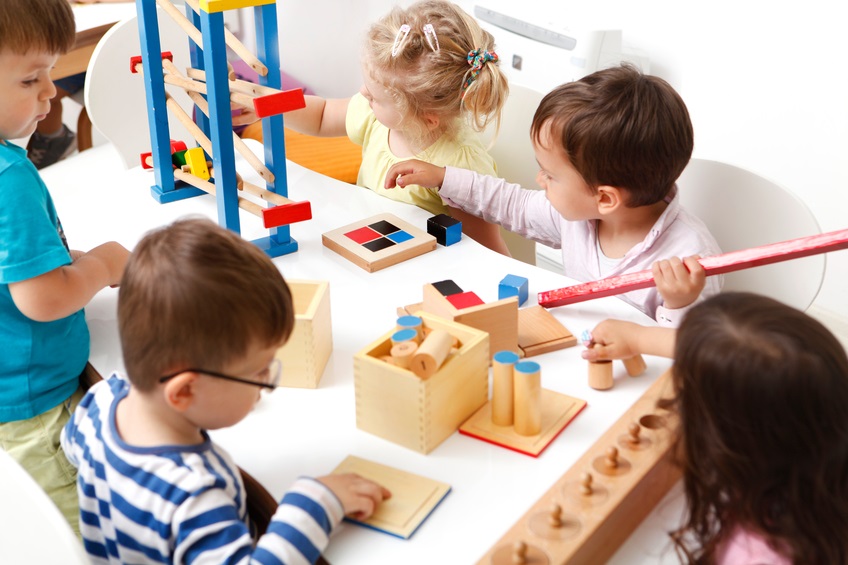
In a constantly evolving education space, early childhood educators face a daunting task: They must create an atmosphere that encourages free, but also purposeful exploration. The best teachers pay close attention to each child’s unique talents and craft personalized, hands-on learning opportunities that spark natural curiosity.
We asked Charlene Kaplan, a lead faculty member for the Master of Education program at Concordia University-Portland, to discuss how teachers can develop strategies to achieve this goal. In addition to her work at Concordia, Charlene Kaplan teaches core literacy classes for seventh-grade students. She has worked in education for more than 30 years and is a certified administrator for the MELA-O test for English language learners.
In what ways do you need to modify your teaching methods to better reach young learners?
One critically important modification that early childhood education (ECE) teachers must make is allowing young children to explore with materials freely. When young children are allowed to play with materials using trial-and-error methods, they are able to develop and exercise their critical thinking skills. Teachers of young children must re-evaluate their teaching styles to avoid the types of direct instruction usually reserved for older students.
Another modification would be planning purposeful play opportunities in order to achieve mastery of state/federal/program standards. Although the play may appear to be free and random, in actuality, the materials available for exploration are chosen to develop particular skills and meet certain standards of learning.
A third modification would be that teachers must try to refrain from inserting themselves into their students’ free explorations of materials. Knowing when and how to become involved in children’s play situations can make learning opportunities successful or not.
How does teaching practice change depending on the student demographics?
Teachers, whether ECE teachers or higher education teachers, always need to meet children where they are. In other words, teachers must be attuned to the skills (or lack thereof) that children bring with them to school and begin building from there. With an ever-increasing population of students whose first language is not English, teachers must include multicultural units and materials in their classrooms to ensure that all children feel safe, connected, and valued in the classroom.
Savvy ECE teachers often use matchmaking techniques in which they pair up a fluent English-speaking child with a nonfluent speaker in a play situation. The fluent speaker would then serve as a nonthreatening model for the English language learner, perhaps teaching the student some vocabulary necessary for a particular activity.
How do teachers create a classroom environment that supports playful learning in light of increasing demands for more rigorous curriculum at younger ages?
With some planning, teachers can create a classroom environment where learning occurs in a playful manner. Learning centers are a very effective way for children to learn specific skills that align to standards.
For instance, in a typical grocery store center in an ECE setting, children learn to count items for sale, recognize denominations of coins, write out rudimentary grocery lists, match vocabulary words with items, understand different jobs held in grocery stores, and role-play. All those skills align with many early childhood standards.
How do you teach hands-on activities in an online format?
Teaching hands-on activities in an online format can be challenging, but far from impossible. Using photographs, sketches, discussing anecdotes, and offering step-by-step lesson plans are all effective methods of successfully sharing useful hands-on activities.
What are the biggest challenges ECE teachers face today?
One of the biggest challenges faced by ECE teachers who are working in a public school district today is the lack of support they receive when trying to offer their students more than just a few minutes of free play daily. In this standards-driven educational atmosphere, play is often seen as frivolous and unnecessary and is often eliminated to allow time for more academics. ECE teachers often find themselves facing an uphill battle when trying to explain to administrators why play is one of the most critical components of an early childhood education.
Another challenge for ECE teachers comes from the parents/guardians of young children. In this competitive age, parents, in wanting their children to be high achievers, believe academics should be the main focus of early childhood education. They, too, need to be more educated about the importance of free play for their children and that standards can be achieved through play that is orchestrated by talented teachers. Open houses and parent conferences are wonderful venues for these important discussions.
Categorized as: Tips for Teachers and Classroom Resources
Tagged as: Early Childhood Education, Mid-Career Teacher, New Teacher, Veteran Teacher
